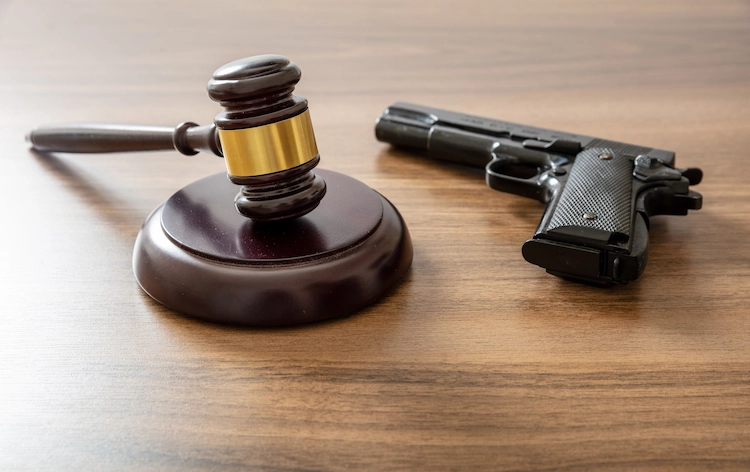NJ Supreme Court Decides Roselle Election Dispute

In Cynthia Johnson v. Denise Wilkerson (S-10-25/091201) (Opinion Filed October 27, 2025), the Supreme Court of New Jersey confirmed that the Democratic County Committee has the right to select the Democratic candidate for the general election, pursuant to N.J.S.A. 19:13-20, after the Roselle primary election was invalidated.
Facts of Johnson v. Wilkerson
On June 10, 2025, Denise Wilkerson won the Democratic primary for a council seat in the Borough of Roselle by three votes over Cynthia Johnson, the other Democratic candidate. Johnson requested a recount and a recheck on June 25. On July 10, the trial court denied the request for a recount but allowed for a recheck. After Johnson filed an emergent appeal, the Appellate Division summarily reversed the denial of the recount. A recount conducted on August 4 reduced Wilkerson’s margin of victory from three to two votes. On August 7, Johnson filed an amended petition for an election contest in the trial court.
In a September 9 decision, the trial court found sufficient evidence that three voters had improperly been denied the right to vote and ordered a new election. Following a motion to clarify filed by the Attorney General, the trial court heard oral argument and reconsidered its decision. In a September 12 order, the court “remove[d] the requirement of a new election” and directed “that the candidate shall be selected pursuant to N.J.S.A. 19:13-20” by September 14. N.J.S.A. 19:13-20 provides, in relevant part:
[i]n the event of a vacancy, howsoever caused, among candidates nominated at a primary election for the general election, which vacancy shall occur not later than the 70th day before the general election, . . . a candidate shall be selected in the following manner:
[a.](4) In the case of an office to be filled by the voters of a portion of a single county, the candidate shall be selected by those members of the county committee of the party wherein the vacancy has occurred who represent those portions of the county which are comprised in the district from which the candidate is to be elected.
The Democratic County Committee selected Johnson as the party’s nominee by a vote of 20 to 7. Wilkerson asked the Appellate Division to reverse the trial court’s September 12 order. The Appellate Division affirmed, upholding the use of the process outlined in N.J.S.A. 19:13-20, which led to Johnson’s selection as the party’s nominee. Wilkerson filed an emergent application asking the Court to direct that both a special primary election and a special general election be held after Election Day. Alternatively, she requested that the names of both Democratic primary candidates be placed on the general election ballot.
NJ Supreme Court’s Decision in Johnson v. Wilkerson
The New Jersey Supreme Court affirmed, rejecting Wilkerson’s requests. The Court’s order also vacated the Appellate Division’s stay, directed the Democratic Committee to comply with certain statutory requirements in N.J.S.A. 19:13-20(d)(2) and (e), and directed the County Clerk to proceed to distribute mail-in ballots in accordance with N.J.S.A. 19:63-9.
“Wilkerson presents an impassioned argument ... But the law does not provide for a special primary election after the date of the general election,” Chief Justice Stuart Rabner wrote on behalf of the unanimous Court.
In reaching its decision, the New Jersey Supreme Court provided a detailed overview of the two statutes that govern the elections dispute: N.J.S.A. 19:13-18 (section 18) and N.J.S.A. 19:13-20 (section 20). Section18, states in part that “if any nomination, be insufficient or inoperative, or if a nominee shall die, or for any reason vacate his nomination, the vacancy so occasioned may be filled in the manner outlined in the succeeding sections.”
As Chief Justice Rabner explained, those sections govern the dispute because (1) a majority of the votes cast in the primary election selected Wilkerson as the Democratic party’s nominee, and (2) the trial court set aside the results of the election. In accordance with the language of section 18, the court’s ruling rendered Wilkerson’s nomination “inoperative” and created a vacancy. Meanwhile, Section 20 outlines how to fill that vacancy. Chief Justice Rabner applied the statutes to the facts of the case, explaining:
Here, Wilkerson was nominated, the court voided the result, and a vacancy resulted. The statute also requires that the vacancy “shall occur not later than the 70th day before the general election” -- in this case, August 26. N.J.S.A. 19:13-20. To be sure, the trial court’s ruling resulting in a vacancy was issued beyond the 70-day deadline, on September 9. We agree with the Appellate Division, however, that delays in the trial court litigation warrant a relaxation of the 70-day requirement. Two challenges, the first filed on June 23, as well as an emergent appeal in between the two matters, were not fully resolved until September 12. Section 20(a)(4) therefore applies and directs that the county committee of the political party “shall . . . select[]” the candidate in matters like this one.
The New Jersey Supreme Court went on to decline the equitable relief Wilkerson sought, concluding that they would “effectively transform the general election into a second primary election for the Democratic candidates. There is no statutory support for that alternative approach either.”
In reaching its decision, the New Jersey Supreme Court acknowledged that it has broadly construed or relaxed the requirements of sections 18 and 20 to promote the right to vote. However, it ultimately determined that the relief Wilkerson sought had no legal basis. “When courts liberally construe a statute, as they do with election laws, they still look at the law’s terms,” Rabner wrote. “Here, the law provides no basis for the relief sought. And neither proposed option calls for an orderly general election to be held early in November consistent with the statutory scheme.”








